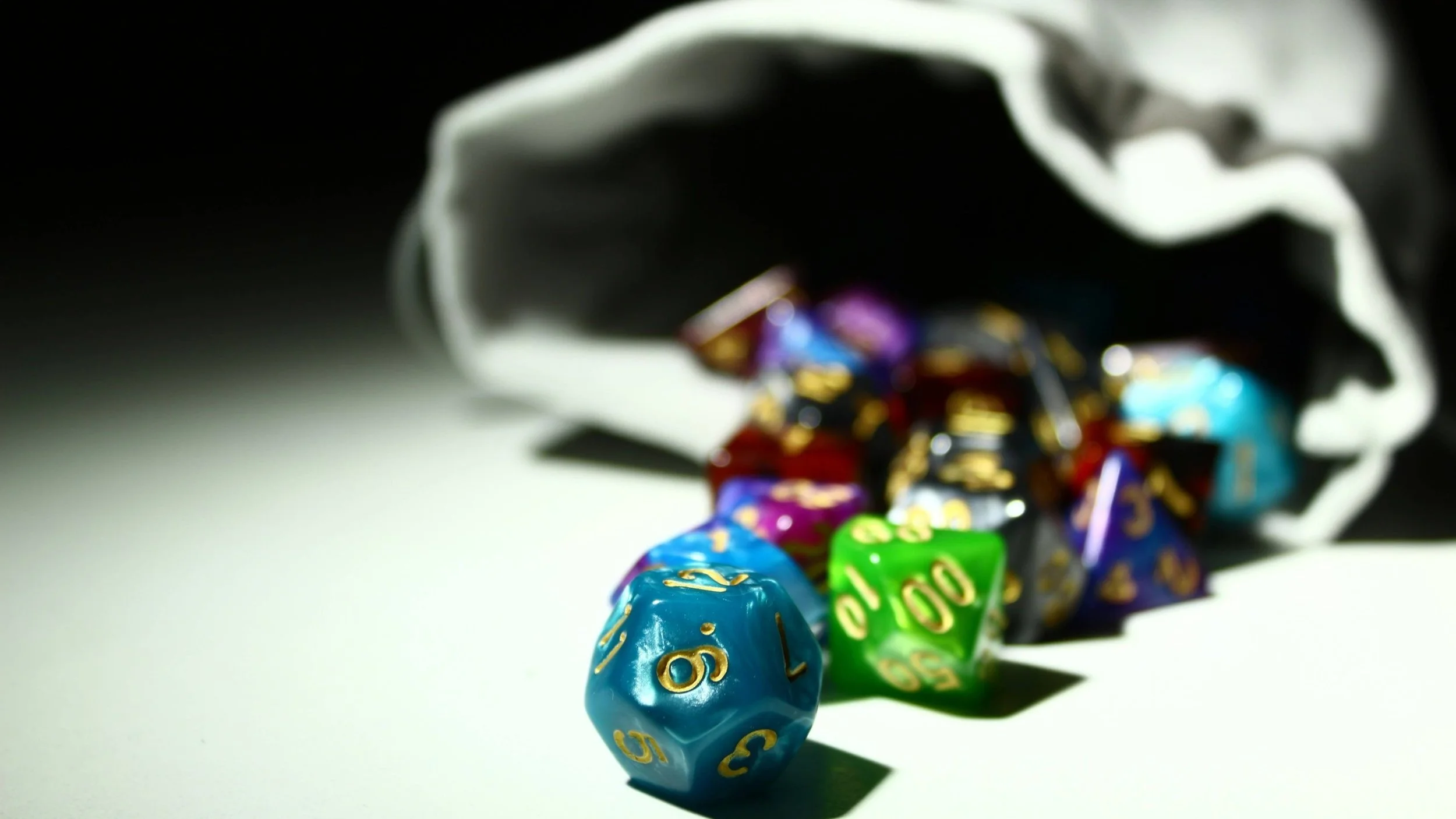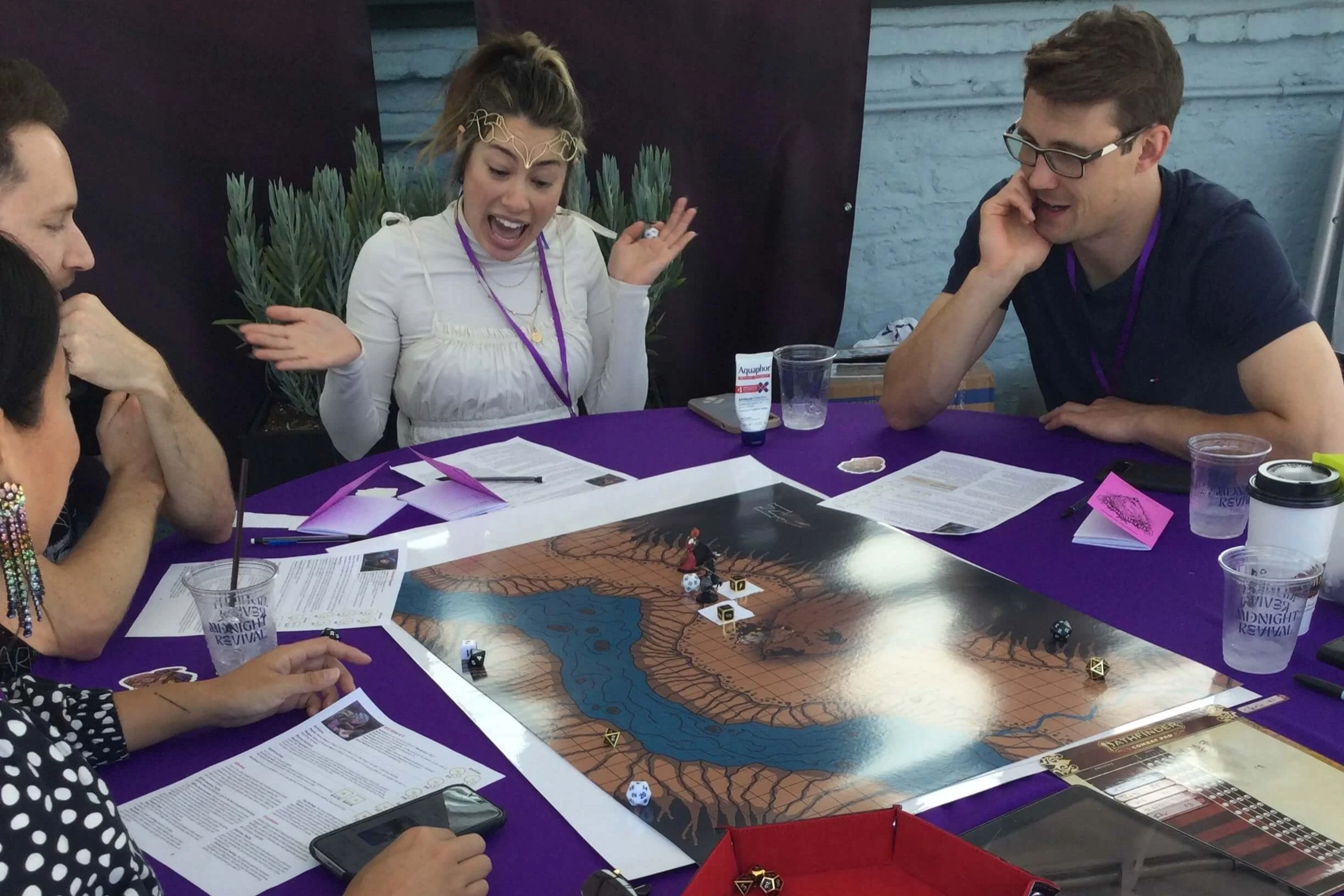Beginners Guide to DnD: Tips for Success
Key Highlights
This beginner’s guide provides a comprehensive introduction to Dungeons and Dragons, covering essential aspects for new players.
Learn about the core components of the game, including character creation, gameplay mechanics, and the role of the Game Master.
Discover helpful tips for preparing for your first DnD adventure, from gathering a group to acquiring essential equipment.
Explore strategies for effective roleplaying, combat, and problem-solving, enhancing your overall gaming experience.
Find answers to frequently asked questions and gain valuable insights to navigate the world of DnD with confidence.
Introduction
Welcome to the exciting world of Dungeons and Dragons! This beginner’s guide will help you get ready for your first DnD adventure. If you love fantasy storytelling, enjoy strategic combat, or just want a great way to spend your time, DnD has something special for you.
Understanding the Basics of Dungeons and Dragons
Dungeons and Dragons, or DnD, is a tabletop RPG. In this game, players make and control fictional characters. A Dungeon Master (DM), or Game Master (GM), leads the game. Players use their imagination, share stories, and roll dice. This mix makes the game exciting and full of surprises. The Player’s Handbook, written by Gary Gygax and Dave Arneson, is an essential guide. It explains how to create characters, the game rules, and how it all works. Battle maps and miniatures can also be used to depict fights visually, but they aren’t necessary for beginners to enjoy the game.
DnD is all about telling stories together. The GM creates the setting and describes the world. Meanwhile, players share what their characters do and decide.
The Role of Imagination in Gameplay
Imagination is key in DnD. It drives the fun and the adventures you create. Unlike video games with fixed endings, DnD lets players tell their own stories through role-playing and creative solutions.
In this fantasy world, you can be anyone you dream of, like a brave knight, a clever rogue, or a smart wizard. Your choices matter. They can change the game and impact your fellow players.
Enjoy the freedom to be creative. Think differently and let your imagination take flight as you discover the endless chances in the DnD universe.
Key Components: Dice, Characters, and the Game Master
A set of dice is used to bring randomness and decide the results of actions in DnD. Each dice, like the well-known 20-sided die for attack rolls or the 4-sided die for damage, adds surprise and excitement.
Characters are key to every DnD adventure. Each player builds a special persona with strengths, weaknesses, and their own backstory. A character sheet keeps track of your character's skills, abilities, and items.
The Game Master is both a narrator and a referee. They guide players through the game, create challenges, and make sure everyone follows the rules. They design the adventure, telling engaging stories and creating memorable moments.
Preparing for Your First Dungeons and Dragons Adventure
Before you start your first game, it's important to prepare. This will help you enjoy the game more and have a smooth beginning. The first step is to gather some friends who are also excited about it.
Next, learn the basics of the game. This includes character creation and the main rules. Having a solid foundation will make it easier to play. You might also want to get essential equipment, like a starter set or a player's handbook, to help with the gameplay.
Essential Equipment and Resources for Beginners
For newcomers, a DnD starter set is a great choice. These sets have everything you need to start playing. They include easy rules, ready-made characters, and a written adventure. You can also find the basic rules of DnD for free online. This helps you understand how to play the game.
The Essentials Kit is another useful tool for new players. It gives extra rules, more character options, and an adventure made for small groups. It improves on the basic rules and adds ideas like sidekicks. It also provides better guidance.
Online platforms like GRIPNR offer helpful digital tools to help guide you through the process. You can find character builders, digital dice rollers, and online communities. These resources make your DnD experience even better.
How to Find and Join a DnD Group
Joining a DnD group can make your gaming experience much better. It gives you a chance to meet new friends and share fun adventures. Online platforms like GRIPNR make finding a group easy. Reddit and Facebook have many DnD communities looking for new players too.
Local hobby shops are great spots for people who love tabletop gaming. These shops may also host DnD events. You can also find bulletin boards there to connect with local groups.
You should look for ways to join an adventuring party. You can do this by going to game store events, joining online communities, or telling your friends who might want to explore the world of DnD.
Beginners Guide to DnD: Getting Started
Starting your DnD journey can be exciting but a bit overwhelming. To help you, let’s break it down into three easy steps to start your adventure.
You will create a fun character and learn the basics of the game. Each step gives you a chance to learn something new. Let’s go on this journey together, one step at a time.
Step 1: Creating Your First Character
Character creation is often one of the most fun parts of DnD. It lets you express your creativity and create a character you will play during your adventures. Start by picking a race that you like. You can choose from options like humans, elves, or dwarves, each with their own unique special abilities and traits.
Next, choose a DnD class that fits your desired playstyle. If you want to be lithe and sneaky, you might pick the rogue class, or if you want to use magic, you might choose to play as a warlock or even a DnD wizard. And for those who want to heal and support their party, the cleric class is a great option. Keep in mind that character generation can be both time consuming and complex, so it may be helpful to use pre-generated characters like we do at GRIPNR.
Once you have chosen your class, you can then choose a subclass at level 3, which allows you to specialize and further customize your character's abilities and playstyle. Additionally, as you progress in the game, you may come across valuable and powerful magic items that can enhance your character's abilities and make them even more formidable in battle.
Next, choose a class that fits how you want to play. Whether you want to use magic as a wizard, fight bravely as a barbarian, or sneak around as a rogue, there is a class for everyone.
Determine your character’s ability scores. These scores show how strong, quick, smart, wise, charming, and healthy your character is. They affect what your character can do. Finally, think about creating a backstory for your character. This should include their past, what drives them, and their goals.
Step 2: Understanding Game Mechanics and Rules
While DnD is all about imagination, it's important to know the game rules and how it works. The Player's Handbook, or Deep Delves as we call it, are the most important thing a new player can have. It explains everything about character abilities, combat, and how to check skills.
As you play more, you'll get used to words like "advantage," "disadvantage," and "saving throws." These terms affect what happens when you take an action. Knowing how to figure out your character's modifiers and use them with your dice rolls is key to understanding your character's stats and doing well in skill checks and fights. It's also important to understand the role of charisma in your character's abilities, as it can greatly impact social interactions and persuasion attempts.
Don't hesitate to ask questions and ask for help from players or Game Masters who have more experience. They can give you helpful advice as you learn the game.
Step 3: Engaging in Your First Campaign
With your character ready and basics of the rules clear, you can start your first DnD campaign! Your first adventure could be a pre-written module or a short adventure made by your Game Master. It could also be a homebrew campaign, specially created for new players.
Remember to keep an open mind and expect the unexpected. Dive into the storytelling and teamwork of DnD. As you play more, you can explore different campaign settings, character choices, and styles of play.
The Dungeon Master's Guide is a great help for GMs. It has tips on making engaging campaigns, creating interesting encounters, and building a lively game world.
Enhancing Your DnD Experience
To enhance your DnD experience, you should embrace all the different sides of the game. Rules and mechanics set a foundation, but real fun comes from getting involved. This means engaging with the world and with your fellow players.
For example, improving your roleplaying skills can make your character feel alive and relatable. Also, taking part in combat and solving problems adds excitement to the adventure.
Tips for Effective Roleplaying
Effective roleplaying means to really get into your character's personality, goals, and faults. Think about your character's backstory. Let their values shape what you do in the game. Be ready to improvise, because unexpected situations will happen. You will need to think quickly and find creative ways to deal with them.
Don’t hesitate to try new things. Experiment with different voices, movements, and accents to make your character unique. Connect with other player characters. This helps to build strong relationships and a great group vibe.
Keep in mind that developing your character is a journey. It happens naturally while playing the game. Enjoy watching your character grow as they face challenges, overcome hurdles, and bond with their friends.
Strategies for Combat and Problem Solving
In DnD, fighting is more than just rolling dice and hitting hard. It takes smart thinking, good teamwork, and a little luck.
Here are some tips for fighting and solving problems:
Positioning is Key: Use the area around you. Look for cover and ways to surround the enemy.
Synergy is Power: Work together with your friends. Mix your skills for better results.
Think Outside the Box: Try new ideas. Use your surroundings to get ahead.
Keep in mind that solving problems goes beyond fighting. DnD has many challenges, like solving old puzzles and dealing with tricky social situations. Use good thinking, work with others, and let your creativity shine.
Facing Challenges as a Beginner
As a beginner, it’s normal to run into some problems and learning curves in your first DnD games. The main thing is to face these challenges with a good attitude. See them as chances to grow.
Whether you are learning the rules, getting comfortable with roleplaying, or adjusting to how the game works with others, know that everyone has to start at some point.
Overcoming Common Obstacles in Early Games
It’s totally okay to ask questions about the rules. You can also ask advice from players who have more experience. They were new once, just like you. Most are happy to help newcomers. Every DnD group has its own vibe and way of playing.
Talk openly with your group. Listen to their thoughts and be ready to change your style. Everyone faces different challenges when starting DnD. Some might find the rules confusing, while others could struggle with roleplaying.
Keep in mind that everyone learns differently. Making mistakes is a normal part of learning. Focus on having a great time and enjoying it for a long time with your fellow players. Embrace the adventure that comes with each game session.
Learning from Mistakes and Building Confidence
Mistakes are a normal part of learning. Instead of thinking of them as failures, see them as chances to grow and get better. Embrace your mistakes, learn from them, and let them improve your understanding of the game and what your character can do.
Gaining confidence in DnD, just like in life, requires practice and experience. Every session gives you a chance to sharpen your skills. You can learn the rules, create fun characters, or handle tricky social situations in the game.
Keep in mind that DnD is all about storytelling and working together. Support your fellow players, celebrate their wins, and build a friendly environment where everyone can feel safe to learn and grow as a team.
Conclusion
Start your DnD adventure with these helpful tips for beginners.
Enter a world where creativity is key, guided by dice rolls, fun characters, and a good Game Master.
Get the resources you need, gather a group, and begin to create your character.
Join campaigns, improve your roleplaying skills, and plan your strategies for combat.
Face challenges, learn from what goes wrong, and see your confidence grow.
Whether you are dealing with tough tasks or picking the right edition, this guide will help
Feel the magic with a free trial with GRIPNR today!
Frequently Asked Questions
What is the best way for beginners to learn DnD rules?
GRIPNR is a great source for players to learn the game in a friendly environment. You can join our community Discord that focuses on DnD and is very useful for asking questions, joining a group, and playing for the first time.
Can I play DnD without a Game Master?
Yes! A GM usually leads the game. But there are other options. You can use sidekick rules or online platforms. These options help create stories together. Players can share adventures. They can also try different roles.
How often should a beginner group meet to play DnD?
Finding a good balance between regular meetings and welcoming newcomers is important. Begin with a meeting schedule that fits everyone's availability. This helps in keeping the campaign going, whether you choose weekly, bi-weekly, or monthly sessions.
What are some recommended resources for new players?
The GRIPNR Community Discord is a good place to start. Beginner guides, online forums, and local gaming groups are great resources too.
How to choose the right DnD edition for your group?
The 5th edition is now the most popular choice, especially for beginners. When deciding, think about your group’s play style, how complicated the rules are, and any resources you have.





